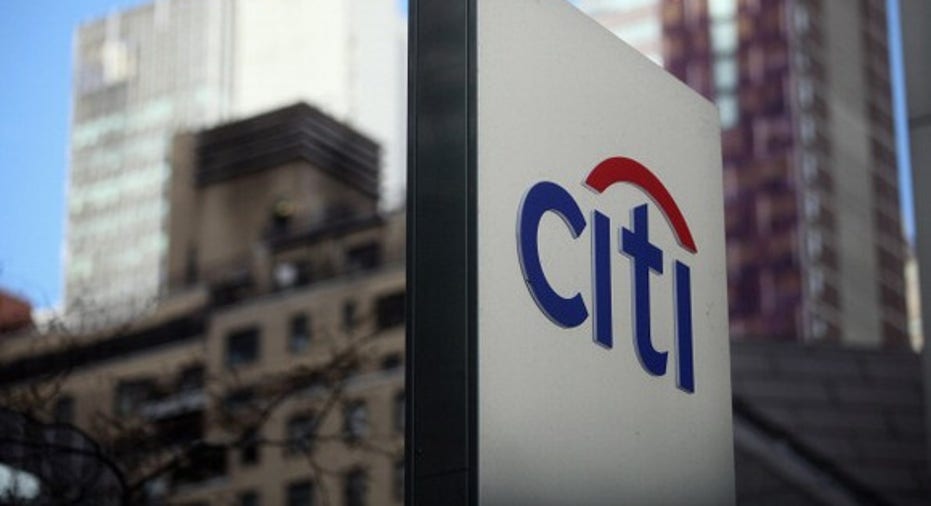Citigroup's Earnings Surge While Revenue Falls

Image source: iStock/Thinkstock.
On Wednesday, Citigroup (NYSE: C) became the last of the big four banks to report fourth-quarter earnings. But while the New York-based bank saw its bottom line climb compared to the year-ago period, its top line fell on a year-over-year basis.
Citigroup earned $3.6 billion in the final three months of last year. That equated to a 5% increase over the fourth quarter of 2015, though it came up short of its competitors' earnings. The next closest bank, Bank of America (NYSE: BAC), reported net income of $4.3 billion for the same stretch.
On a per-share basis, Citigroup reported earnings of $1.14 per share. That was markedly better than last year, when it earned $1.02 per share. It also beat the consensus estimate of analysts, who had predicted that the nation's fourth biggest bank by assets would earn $1.12 per share for the period.
Better trading results were the primary catalyst behind the surge in Citigroup's bottom line, fueled by heightened volatility following the unexpected outcome of the presidential election in November. Its trading revenue in the fourth quarter climbed 31% year over year, excluding an accounting adjustment.
While Citigroup's trading units fared better than its competitors, all three of the large universal banks benefited from the same trend. Trading revenues at JPMorgan Chase were up 24% in the quarter, while they were up 11% at Bank of America.
Outside of Citigroup's trading units, the decline in its revenue was broad based. Net interest income fell, as the bank's interest expense rose much more rapidly (up 13%) than its interest income (up 3%). Noninterest income also declined by a substantial margin, falling 16% year over year.
These revenue declines make Citigroup's performance last quarter look worse than it in fact was. As the bank pointed out in its earnings release, the drop in noninterest income in particular can be traced to an absence of net gains on asset sales last quarter relative to the fourth quarter of 2015.
Citigroup also saw its operating expenses drop materially. In the year-ago quarter, it spent $11.1 billion on noninterest expenses compared to only $10.1 billion this year. And the bank's credit costs declined as well, with its provision for credit losses falling 29%, from $2.5 billion in the fourth quarter of 2015 down to $1.8 billion in the fourth quarter of 2016.
It was these latter results which cast an optimistic tone over the quarter, as the bank heads into what many analysts and commentators expect to be a promising year for banks.
"Our core businesses are beginning to produce the returns our investors expect and deserve," said CEO Michael Corbat. "In 2016, we returned nearly $11 billion in capital to our shareholders. Even with this capital return, we ended the year with a Common Equity Tier 1 Capital ratio of 12.5%, 40 basis points higher than when we started the year, showing the capability of this franchise to consistently generate and return significant amounts of capital."
It's also worth noting that the fourth quarter of last year will be the last time Citigroup breaks out the results of its Citi Holdings subsidiary, which had been created by the bank following the financial crisis in order to house toxic and noncore assets. The unit originally held more than $800 billion worth of assets, but that figure has dropped to $54 billion, or less than 3% of the company's total balance sheet.
Citigroup's mixed results were reflected in its stock price Wednesday, which dropped by 1.7% in the wake of its earnings announcement.
10 stocks we like better than Citigroup When investing geniuses David and Tom Gardner have a stock tip, it can pay to listen. After all, the newsletter they have run for over a decade, Motley Fool Stock Advisor, has tripled the market.*
David and Tom just revealed what they believe are the 10 best stocks for investors to buy right now... and Citigroup wasn't one of them! That's right -- they think these 10 stocks are even better buys.
Click here to learn about these picks!
*Stock Advisor returns as of January 4, 2017
John Maxfield owns shares of Bank of America. The Motley Fool has no position in any of the stocks mentioned. The Motley Fool has a disclosure policy.



















